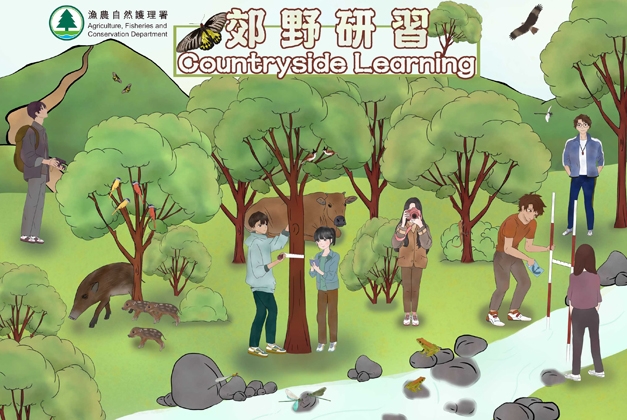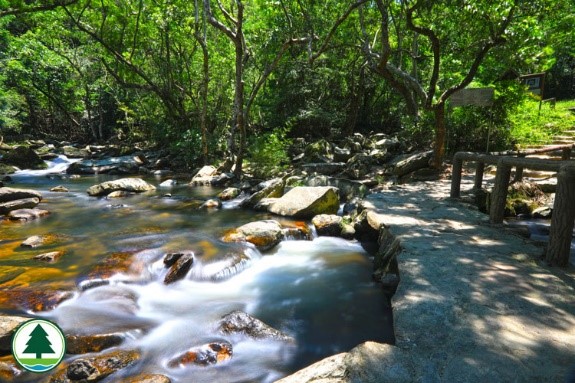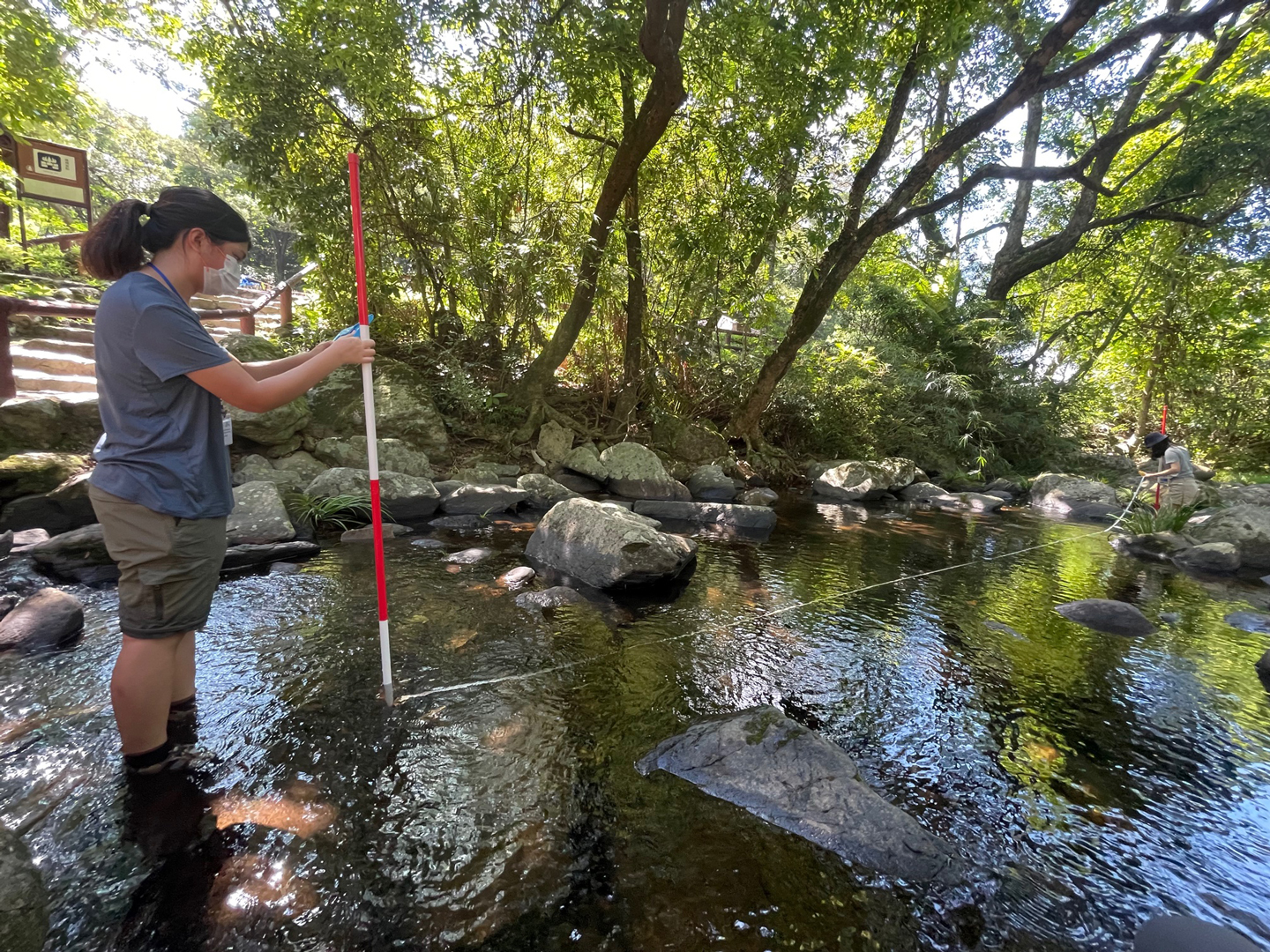Countryside Learning - Fluvial Environment
|
Class: |
Senior Secondary (S4 – S6) |
|
|
Subject: |
Geography |
|
|
Location: |
||
| Maximum number of Participants: | 50 | |
| Note: When conducting the field trip, teacher must follow Guidelines on Outdoor Activities or the relevant guidelines/notices on field trips by the Education Bureau. | ||
|
Class: |
Senior Secondary (S4 – S6) |
|
Subject: |
Geography |
|
Location: |
|
| Maximum number of Participants: | 50 |
| Note: When conducting the field trip, teacher must follow Guidelines on Outdoor Activities or the relevant guidelines/notices on field trips by the Education Bureau. | |
|
|
|
Learning objectives:
This programme aims at promoting students’ geographical thinking through the adoption of inquiry approach in fluvial fieldwork. For knowledge, students are expected to develop knowledge and understanding of geographical concepts of fluvial environment. With the acquisition of basic geographical concepts, students will be able to identify the interrelationship between the fluvial environment and human activities. During the field study, students are expected to implement the geographical inquiry skills, which is the main focus of geographical fieldwork, with the purpose of cultivating students’ ability in identifying and asking geographical questions, collecting and extracting data, using appropriate formats and techniques in presenting and analyzing data and information, evaluating the findings and providing solutions. Meanwhile, generic skills including critical thinking and problem-solving skills will also be demonstrated through geographical inquiry, with the hope that students will be able to transfer the skills to other learning and life contexts. Ultimately, students are expected to cultivate attitudes that will enable them to show respect to the nature and be aware of the increasing importance of conserving country parks for its sustainable development.
Relevance to curriculum:
In accordance with the Geography Curriculum and Assessment Guide (Secondary 4-6) Related Chapters:
Managing River and Coastal Environments: A Continuing Challenge (Compulsory part) and Fluvial Environment
Type of field activity:
|
Geographical Investigation: Fluvial Fieldwork Measurement, including measuring channel width and depth, channel gradient and channel velocity
During the fieldwork investigation, students will be able to investigate the shape and morphology of a river by applying various fluvial fieldwork data collection methods. Furthermore, they will have a chance to examine how fluvial processes vary along the courses of a river by conducting analysis based on the data collected. In addition, with the assistance of photographs and satellite images in analyzing the change of fluvial environment, students are expected to deepen their map reading skills. Most importantly, students are expected to apply the geographical inquiry stages into fieldwork investigation, with the aim to cultivate their critical thinking skill and facilitate their higher order thinking.
These fieldwork activities encourage students to explain and share their findings from geographical and spatial perspectives. Ultimately, students will be able to appreciate the beauty of nature in country parks and special areas and recognize the need for sustainable management of our physical management.
|
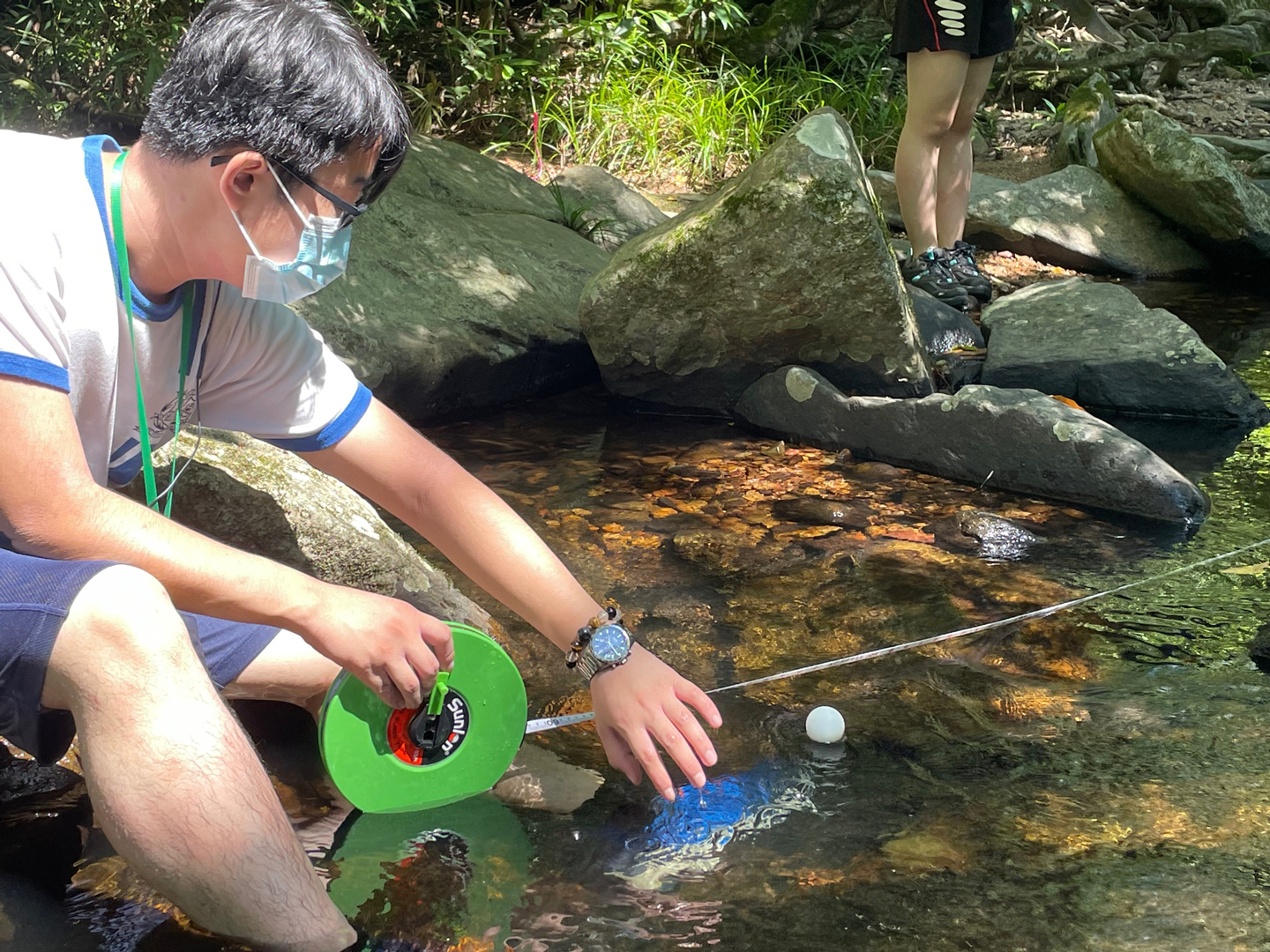
|
|
|
Geographical Investigation: Fluvial Fieldwork Measurement, including measuring channel width and depth, channel gradient and channel velocity
During the fieldwork investigation, students will be able to investigate the shape and morphology of a river by applying various fluvial fieldwork data collection methods. Furthermore, they will have a chance to examine how fluvial processes vary along the courses of a river by conducting analysis based on the data collected. In addition, with the assistance of photographs and satellite images in analyzing the change of fluvial environment, students are expected to deepen their map reading skills. Most importantly, students are expected to apply the geographical inquiry stages into fieldwork investigation, with the aim to cultivate their critical thinking skill and facilitate their higher order thinking.
|
|
|
|
|
|
These fieldwork activities encourage students to explain and share their findings from geographical and spatial perspectives. Ultimately, students will be able to appreciate the beauty of nature in country parks and special areas and recognize the need for sustainable management of our physical management.
|
|

|
|
Event calendar:
|
Mondays – Fridays* (except Saturdays, Sundays & public holidays) AM ( 9 a.m. to 12 noon.) or PM (2 p.m. - 5 p.m.) Applications should be submitted no earlier than 6 months but at least 2 weeks before the date of the activity.
|
How to Enroll:
Please fill in the Application Form (Limited quota will be allocated on a first-come- first-served basis)
Language:
Chinese/ English
Demonstration Video:
|
Measuring River Velocity: Using Flowmeter |
|
Measuring River Velocity: Using Float Method |
|
Measuring River Velocity: Using Flowmeter |
Measuring River Velocity: Using Float Method |
Download:
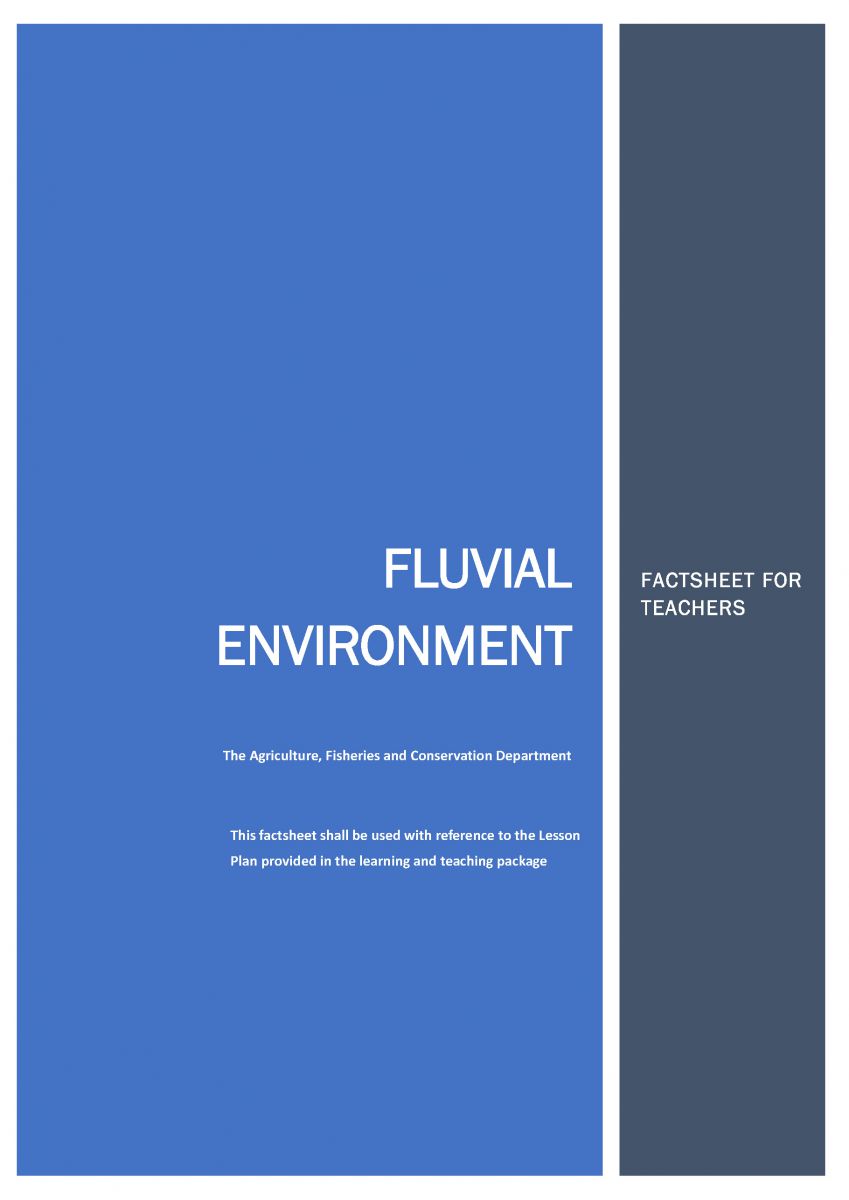 |
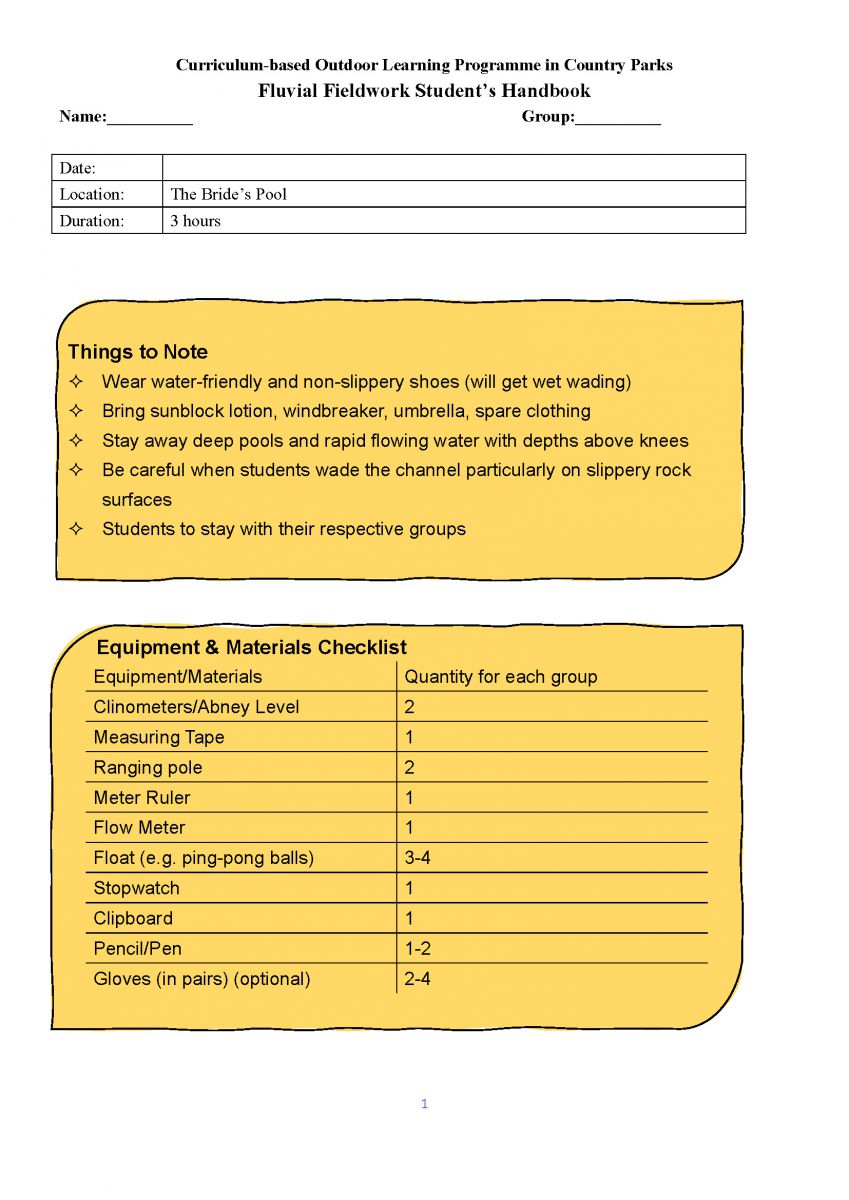 |
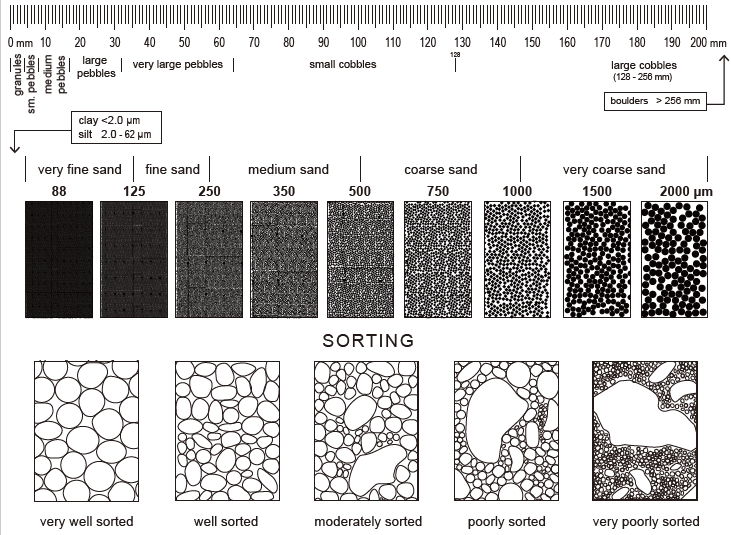 |
| Field Book (Teacher) | Field Book (Student) | Field Guide |
Enquiry:
Please contact Tai Mo Shan Country Park Visitor Centre on Monday, Wednesday to Sunday and Public Holidays 9:30 a.m. - 4:30 p.m (except the first two days of the Chinese New Year) at 2498 9326 or email to tmscpvc@afcd.gov.hk.


